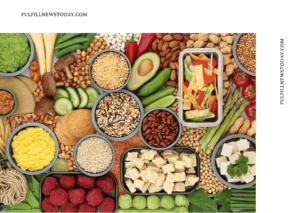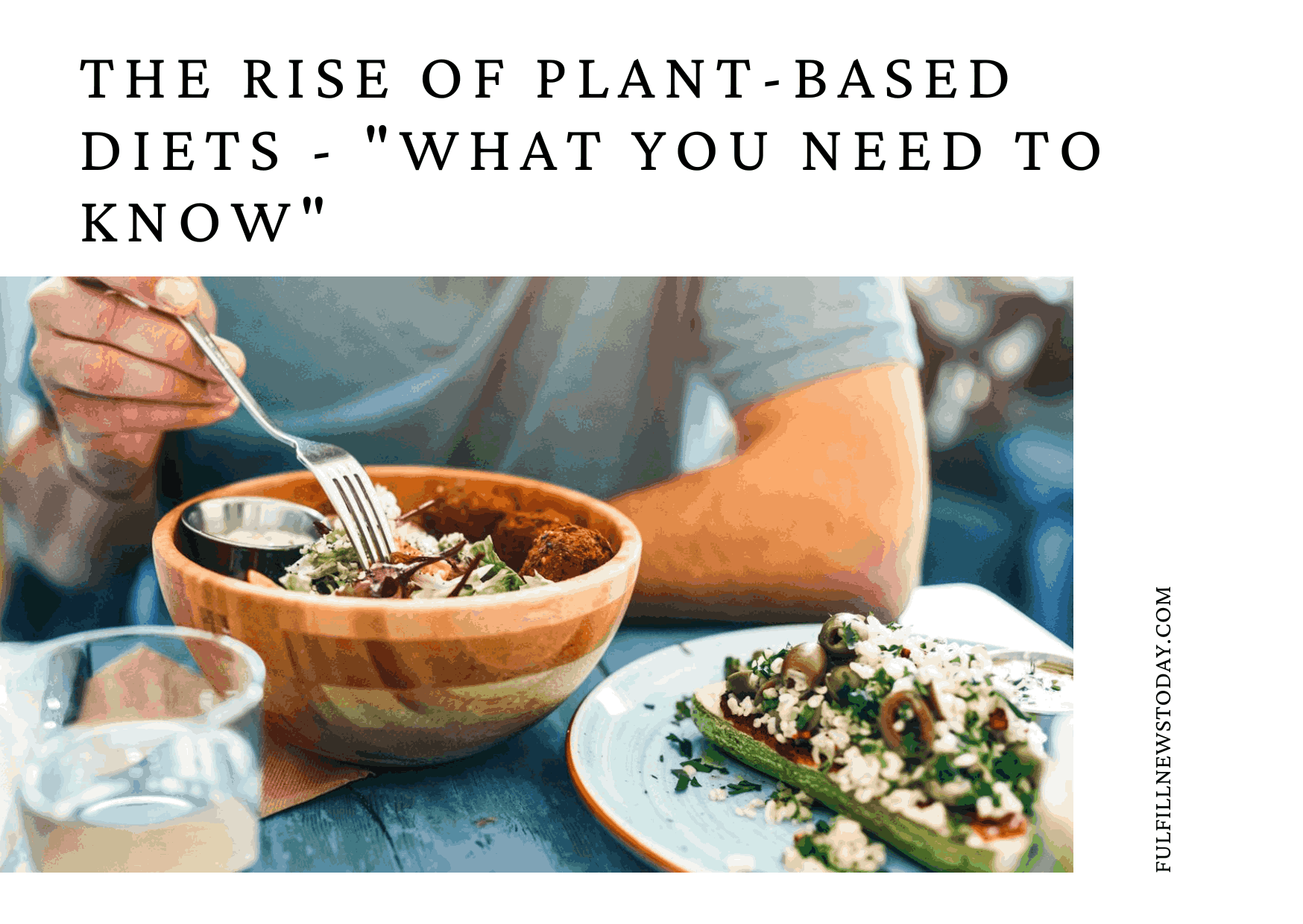The popularity of plant-based diets has been on the rise in recent years. More and more people are turning to plant-based diets as a way to improve their health, reduce their environmental impact, and address ethical concerns related to animal agriculture.
As plant-based diets become more mainstream, it’s important to understand what they are and what benefits they offer. we’ll explore the rise of plant-based diets, the health benefits they offer, their environmental impact, and how to transition to a plant-based diet.

We’ll also discuss ethical considerations related to plant-based diets and provide tips for making the transition to a more plant-based lifestyle.
What are plant-based diets :
It will provide readers with a clear understanding of what plant-based diets are, and the different types of plant-based diets that exist, such as vegan, vegetarian, flexitarian, etc.
It will also outline the benefits and drawbacks of plant-based diets, which will help readers to make informed decisions about their dietary choices. This section will be important for those who are new to the concept of plant-based diets, as well as for those who may be considering transitioning to a plant-based lifestyle.
By the end of this section, readers should have a clear understanding of what a plant-based diet entails and whether it is right for them.
Benefits and drawbacks of plant-based diets :
Sure, here’s an overview of the benefits and drawbacks of plant-based diets,
Benefits:
Better weight management: Plant-based diets can help with weight management due to their high fiber content, which helps you feel full and satisfied.
Improved digestion: Plant-based diets are rich in fiber, which promotes healthy digestion and bowel movements.
Positive environmental impact: Plant-based diets have a smaller environmental footprint than diets that rely heavily on animal products, making them a more sustainable choice.
Ethical considerations: Many people choose plant-based diets for ethical reasons related to animal welfare, sustainability, and social justice.
Drawbacks:
Potential nutrient deficiencies: Plant-based diets can be low in certain nutrients such as protein, iron, calcium, and vitamin B12. It’s important to ensure that nutrient needs are met through a variety of plant-based foods or supplements.
Limited food options: Depending on where you live and what’s available, it may be difficult to find a wide variety of plant-based foods.
Expense: Plant-based diets can be more expensive if you rely on specialty foods or supplements.
Overall, the benefits of plant-based diets can outweigh the drawbacks, but it’s important to be aware of the potential challenges and to ensure that nutrient needs are met through a balanced diet.
The health benefits of plant-based diets :
We’ll delve into the numerous health benefits associated with plant-based diets. We’ll start with an overview of the general health benefits before discussing specific benefits in detail, such as improved heart health, weight management, and reduced risk of chronic diseases such as diabetes, cancer, and hypertension.
This section aims to provide readers with a comprehensive understanding of how plant-based diets can positively impact their health and well-being.
Scientific evidence supporting the health :
We’ll discuss the scientific evidence that supports the health benefits of plant-based diets. We’ll highlight that there is a growing body of research that shows how plant-based diets can reduce the risk of chronic diseases, including heart disease, type 2 diabetes, and certain types of cancer.
By providing readers with this information, we aim to help them make informed decisions about their dietary choices and health.

How to transition to a plant-based diet :
Tips for transitioning :
Sure, here are some tips for transitioning to a plant-based diet,
Start slowly: Transitioning to a plant-based diet can be a big change, so it’s important to take it slow. Start by incorporating more plant-based meals into your diet gradually, rather than making a sudden switch. For example, you could start with one plant-based meal a day and gradually increase the number of plant-based meals you consume.
Experiment with new recipes: Trying out new plant-based recipes can be a fun and exciting way to make the transition to a plant-based diet. Look for recipes online or in plant-based cookbooks and try out a few new recipes each week.
Focus on whole foods: Eating a variety of whole, minimally processed plant-based foods is key to ensuring that you get all the nutrients you need on a plant-based diet. Focus on foods like fruits, vegetables, whole grains, legumes, nuts, and seeds.
Plant-based diets and ethics :
We’ll highlight how choosing a plant-based diet can be a way to support more sustainable and ethical agricultural practices, such as regenerative farming and small-scale agriculture.
This section aims to provide readers with an understanding of how plant-based diets can be viewed as an ethical choice that supports animal welfare, environmental sustainability, and social justice.
Overview of ethical considerations :
In summary, there are several ethical considerations associated with plant-based diets,
Animal welfare: Many people choose plant-based diets for ethical reasons related to animal welfare. They may be concerned about the treatment of animals in the food industry and choose to avoid consuming animal products as a way to reduce animal suffering.
Sustainability: Plant-based diets can be more sustainable than diets that rely heavily on animal products. Animal agriculture has a significant environmental impact, contributing to deforestation, water pollution, and greenhouse gas emissions.
By choosing plant-based foods, individuals can reduce their environmental footprint and support more sustainable agricultural practices.
Food justice: The production and distribution of food can have significant social justice implications. Plant-based diets can be a way to support more equitable access to food and promote a more just food system.
For example, by reducing our reliance on animal agriculture, we can reduce the amount of land and resources devoted to animal feed production and instead use those resources to grow crops for human consumption.
Conclusion :
plant-based diets are becoming increasingly popular due to their numerous health benefits, environmental sustainability, and ethical considerations.

As discussed in this blog post, plant-based diets can help reduce the risk of chronic diseases, promote sustainable agricultural practices, and support animal welfare. For those interested in transitioning to a plant-based diet, it’s important to take it slow and focus on incorporating more plant-based meals gradually.
Experimenting with new recipes and focusing on whole foods and plant-based protein sources can help ensure that nutrient needs are met. Ultimately, choosing a plant-based diet can be a positive step for both personal health and the health of the planet.
Read more: Understanding the basics of blockchain technology
